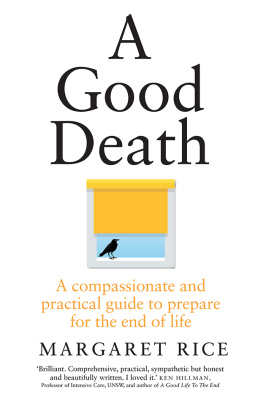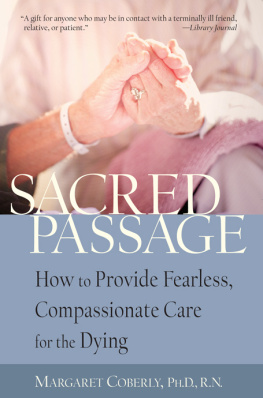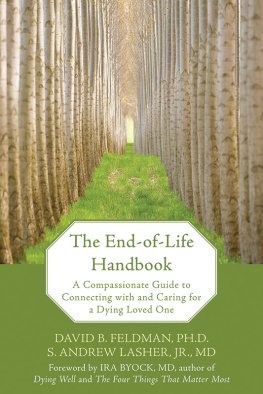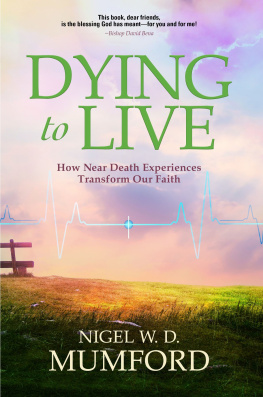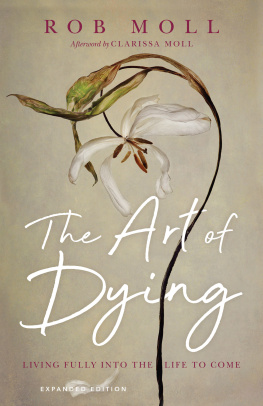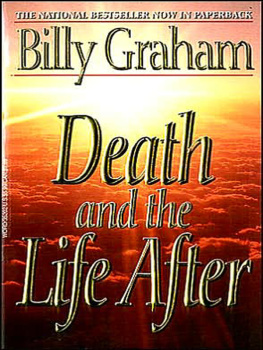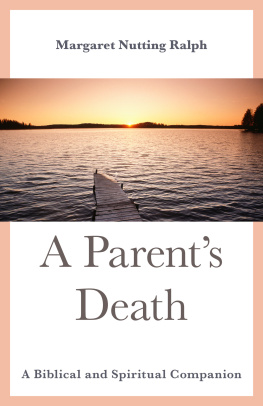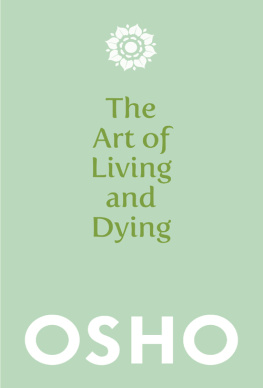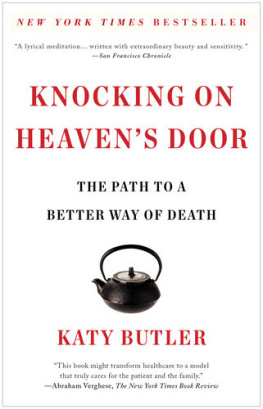Published in 2019 by Murdoch Books, an imprint of Allen & Unwin
Copyright 2019 Margaret Rice
All rights reserved. No part of this book may be reproduced or transmitted in any form or by any means, electronic or mechanical, including photocopying, recording or by any information storage and retrieval system, without prior permission in writing from the publisher. The Australian Copyright Act 1968 (the Act) allows a maximum of one chapter or 10 per cent of this book, whichever is the greater, to be photocopied by any educational institution for its educational purposes provided that the educational institution (or body that administers it) has given a remuneration notice to the Copyright Agency (Australia) under the Act.
| Murdoch Books Australia | Murdoch Books UK |
| 83 Alexander Street, | Ormond House, 2627 Boswell Street, |
| Crows Nest NSW 2065 | London WC1N 3JZ |
| Phone: +61 (0)2 8425 0100 | Phone: +44 (0) 20 8785 5995 |
| murdochbooks.com.au | murdochbooks.co.uk |
For corporate orders and custom publishing contact our business development team at
ISBN 978 1 76063 777 4 Australia
ISBN 978 1 91163 214 6 UK
eBook ISBN 978 1 76087 122 2

A catalogue record for this book is available from the British Library
Cover design by Design By Committee
To Mum, Jeanette Marie Rice, whose question led to this book.
Some years ago, I sat at my mothers bedside as she lay dying. My siblings and I were all well-educated people, but I realised we knew nothing about the experience that we as a family were just about to confront.
We had many questions.
Can we predict when someone is likely to die? (Is that even a fair question?) Is there a process that well be able to recognise, a set of events, a particular order of events? And just exactly what will happen?
How do we work with the medical experts? How do we deal with the non-medical issues that will come up? Is morphine used to nudge death along or is this just a myth? How does the idea of assisted death fit in with personal, lived experiences?
These questions, some of them seemingly minor, have a very big impact on the dying person and their family and friends, and how they will manage their fears. Having a little information can help a lot. But as my mother lay dying, such questions felt too simple for the busy experts, too biological for counsellors and too broad for the doctors and nurses grappling with her immediate situation. I wished Id been a little bit more curious before her life reached this particular phase, this time of ending.
We were typical of many people today, facing the death of someone really close for the first time as adults in their late forties and early fifties, although I was later to meet people who hadnt had a close experience of death until they were even older.
Youre reading a gentle, practical guide to dying.
We live in a culture that is often described as death denying. Youthfulness is idolised; the elderly are neglected. But we dont have to be this way. Lets take a step in a different direction, towards understanding what well face, so that we can help others around us die a better death. In turn, the knowledge we gain and the experiences we have will help us when our own time comes.
Once upon a time, our involvement with death was much more immediate. When our great-grandmothers were children they watched and listened when a death occurred, little observers of their households dramas and rituals, an experience that was often repeated. They learned unconsciously.
They grew up knowing what it is to have someone they love die, to grieve them, mourn them, then bury them all from their own or another family members house.
But theirs was the last generation to grow up with such a close knowledge of death, before it was outsourced.
Today in a thousand different ways we are lucky this has changed. Infant mortality rates have dropped, death from infectious diseases is low and, at least for affluent people in the West, we are pushing death from old age right back. So now it is reasonable for many people to expect to live beyond 80, and increasing numbers are reaching a century. But of course, death is always present. Some will die early from cancers, accidents and a range of chronic illnesses.
So we have to do two things at once. Prepare as though we will live to be 100, and also prepare as though we wont, since we dont know for sure which of these two ends we will have.
This means changing from denying death ourselves to acknowledging in a more practical way than most of us currently do, that we will die. We dont want to be morbid and obsessed with death, but we need to know how to meet it.
When Mum was dying she asked, Why? And that catapulted me into interviews and reflections, in an attempt to learn more. So after Mums death I started listening to and gathering the everyday stories of people who had experienced the death of someone they love. Im a journalist and a grandmother. I like to mix sleuthing to find answers to difficult questions with enjoying the company of people including little ones and a good cup of tea.
Shortly after I started work on this task, my brother Julians sudden and unexpected death in a motorcycle accident drew me further into an exploration of grief and how we manage this terrible thing called death. Interviews soothed me, kept me going, as I struggled with my double load of grief.
The stories I heard were profoundly moving but also full of clues to what people need today. After further research, I realised that themes were emerging. I talked to experts and did a lot of reading, which I then distilled. But I noticed that some of the most helpful information came from those who were giving simple support to their own communities. This tells us something important what we learn from experts and outsiders, we can feel confident about adapting and changing to suit ourselves and our own people. As you use this guide, keep that in mind.
We can regain the sense generations of our ancestors had, that they could help each other, those close by, to make a good death, at least in those circumstances where death didnt occur suddenly and violently, say as the result of an accident. And even in those circumstances, we can learn to be more effective.
Death is awful. We should never get used to it. We should keep looking for cures for cancers and defying other diseases. We should keep making our drivers safer and challenging the acceptability of war. We should keep doggedly searching for ways to lead people into a rich life, so that suicidal ideas are never shaped. We dont have to romanticise death and I certainly dont want to.
Ive distilled my experiences and thoughts into eleven practical steps, corresponding to the eleven chapters in this book. You can work with these steps, then build on them to make the experience of death better.
A guide to death in eleven ancient woodcuts
It was summer in London and an unseasonably hot one. I was far away from home, but the grass in Kew Gardens had an Aussie-brown tinge to it, suggesting Melbourne in a heatwave, not England. And then a Sydney-style storm raged, so I slept to the familiar sound of the intense pounding of rain.
I was here for a wedding but I allowed myself to be diverted. I was eager to see an etching of the ars moriendi the treatise on the art of dying well that had captured my imagination, so I popped in to see them at the British Museum.

